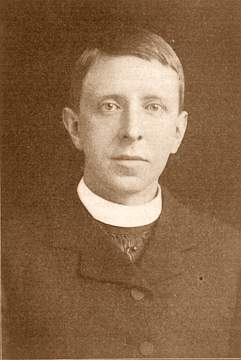 |
Post-it
Souls of all kinds
the ones sleepy with love
the ignorant of love
the crazy of love
the learned of love
... what interests me the most |
And Jesus added: “I make souls of all kinds: I make the ones sleepy with love, the ignorant of love, the crazy of love, the learned of love. But, of all this, do you know what interests me the most? That everything be love. Anything else which is not love is worth not even a glance.”
July 23, 1912
The heart must be empty of everything.
Finding myself with my always lovable Jesus, I was lamenting to Him
because, in addition to His privations, I also felt my poor heart insensitive,
cold, and indifferent to everything, as if it no longer had life. What a
pitiful state mine is! And even so, I myself am unable to cry over my
misfortune. ‘Since I myself am unable to have compassion for myself - You, have
compassion for this heart, which You have loved so much, and which You intended
so firmly to receive.’
And Jesus: “My daughter, do not afflict yourself for something that deserves no
affliction. Instead of having compassion for these laments and for your
heart, I am pleased and I say to you:
‘Rejoice with Me, because I have made a complete purchase of your
heart. And since you no longer feel anything of your very contentment and
of the life of your heart, I alone come to enjoy your contentment and your very
life.’
“You must know that when you do not feel anything from your heart, I draw
your heart into my Heart and I keep at rest, in sweet sleep, while I enjoy
it. If you do feel it, then the enjoyment is together. If you let
Me act, after I have given you rest in my Heart and enjoyed it from you, I will
come to rest in you and I will make you enjoy the contentment of my Heart.”
“Ah, my daughter, this state is necessary for you, for Me and for the
world. For you: if you had been awake, you would have suffered very much
in seeing the chastisements which I am sending now, and the others which I will
send. Therefore, it is necessary to put you to sleep so as not to make
you suffer so much. It is necessary for Me: how much I would have
suffered had I not made you content - had I not condescended to what you
wanted, since you would not permit Me to send chastisements. So, it was
necessary to put you to sleep. In certain sad times, with
necessity of chastisements, it is necessary to choose ways in the middle in
order to be less unhappy. It is necessary for the world: if I wanted to
pour Myself out with you and make you suffer as a lance used to do - and
therefore making you content by sparing the world the chastisements - faith,
religion, salvation, would be banished even more from the world, especially
considering how souls are disposed in these times. Ah, my daughter, let
Me act, whether I have to keep you awake or asleep. Did you not tell Me
to do with you whatever I wanted? Do you perhaps want to withdraw your
word?”
And I: ‘Never, O Jesus! Rather, I fear that I have become bad, and because
of this I feel I am in this state.’
And Jesus: “Listen, my daughter, is it perhaps that some thought, affection or
desire which is not for Me has entered into you? If this were the case,
you should fear; but if this is not, it is a sign that I keep your heart in Me
and I make it sleep. The time will come - it will come - when I will have
it wake up; then you will see that you will take the attitude of before, and
since you will have been at rest, this attitude will be greater.”
Then He added: “I make souls of all kinds: I make the ones sleepy with love, the
ignorant of love, the crazy of love, the learned of love. But, of all
this, do you know what interests me the most? That everything be
love. Anything else which is not love is worth not even a glance.”












